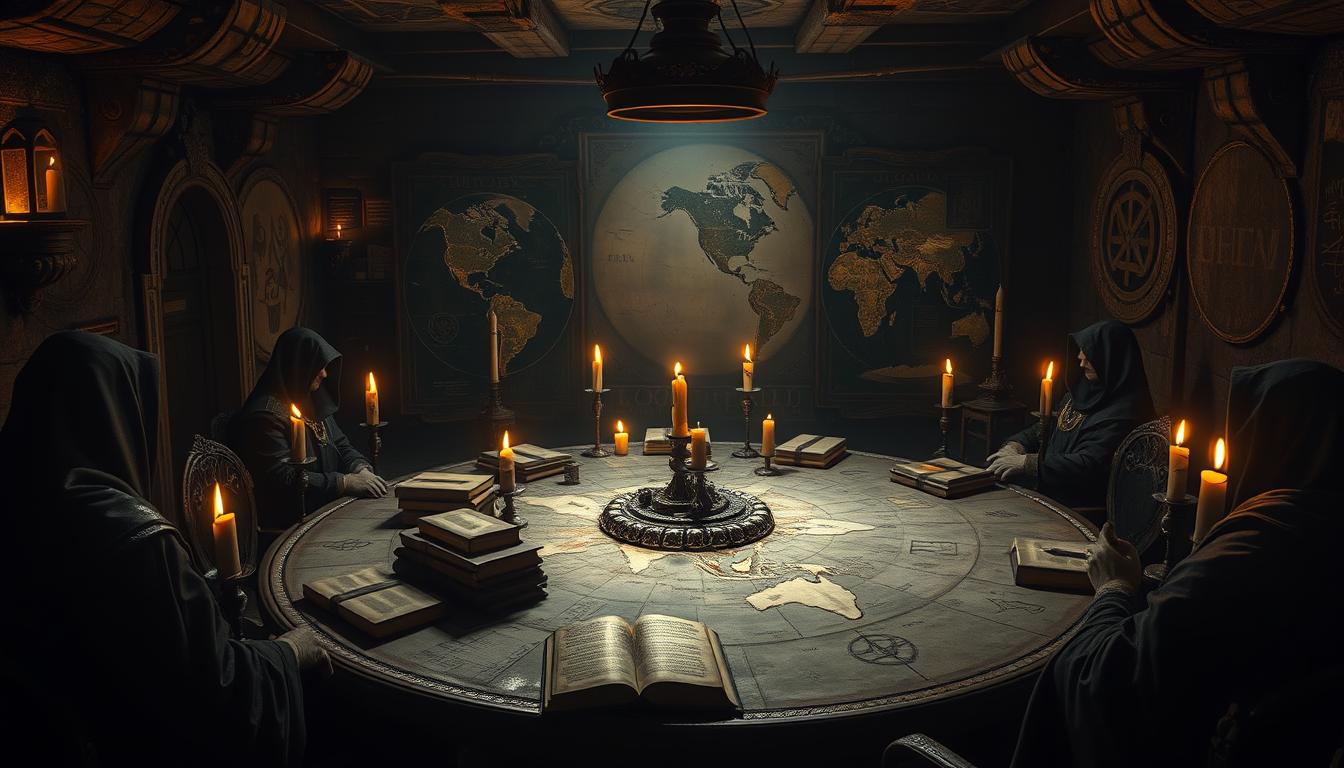Secret societies have fascinated people for centuries. Groups like the Knights Templar and Freemasons played key roles in world history. Their secret meetings shaped nations and changed millions of lives.
The Bavarian Illuminati is a great example. Started in 1776, it was linked to the French Revolution. This sparked a wave of uprisings across Europe. Their goal of a new, fair society sparked many conspiracy theories that still exist today.
Key Takeaways
- Secret societies have existed for centuries, exerting significant influence on world events.
- These organizations, such as the Knights Templar and Freemasons, have been linked to major revolutions and social upheavals.
- Conspiracy theories surrounding secret societies have fueled public fascination and imagination for generations.
- The allure of hidden agendas and powerful, elite members has made secret societies a topic of enduring interest.
- Understanding the role of these organizations in shaping history provides insight into the complex interplay of power, influence, and social change.
The Illuminati’s Role in European Uprisings
The Illuminati was a secret society started by professor Adam Weishaupt in Bavaria in 1776. It played a big role in Europe’s social and political changes during the Enlightenment. Weishaupt, a law professor at the University of Ingolstadt, wanted to challenge the Catholic Church and the Bavarian monarchy. He aimed to promote reason, secularism, and freedom for all.
The Illuminati drew many influential people from Freemason lodges. It organized them into three groups and used secret codes to talk. Although it was banned in 1787, its influence on European revolutions in the late 18th and early 19th centuries is clear.
The Illuminati’s short time didn’t stop it from being linked to big events like the French Revolution. It still sparks conspiracy theories and is a part of popular culture today. Its focus on Enlightenment values, ties to powerful figures, and secrecy have made it a lasting part of European history.
Freemasonry’s Influence on the American Revolution
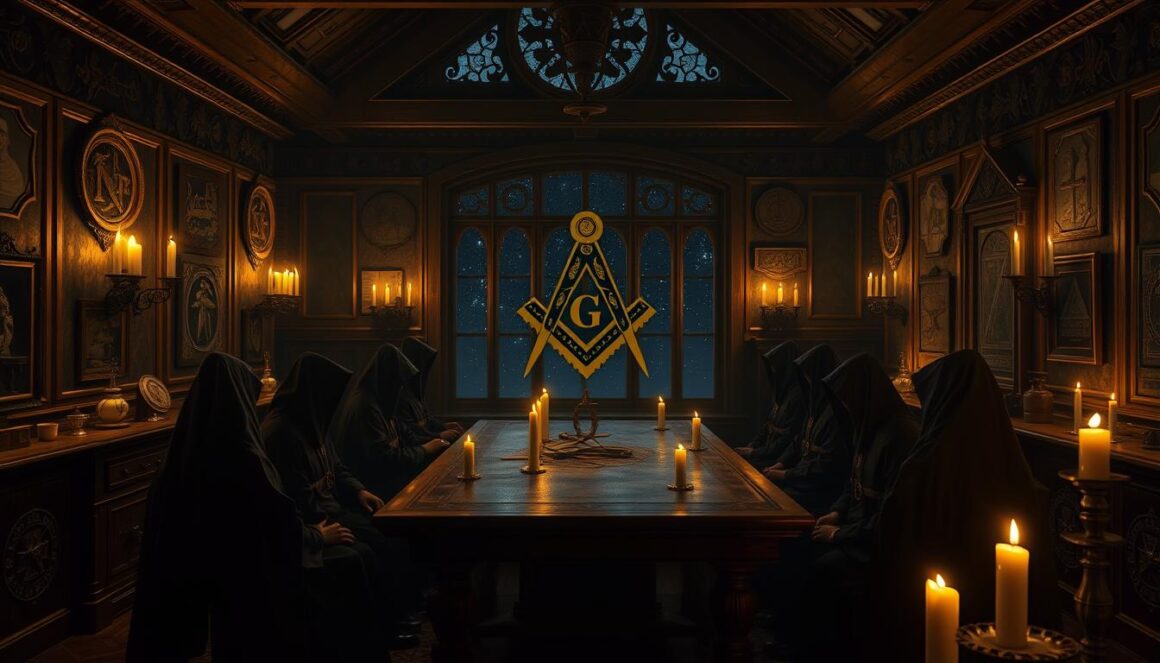
Freemasonry was key in shaping American history. Many Founding Fathers, like George Washington and Benjamin Franklin, were Masons. In fact, 13 of the 39 who signed the U.S. Constitution were Freemasons.
The Masonic movement started in medieval craft guilds. It officially began in London in 1717. It quickly spread to Europe and the American colonies, promoting Enlightenment values. However, its secrecy led to conflicts, especially with the Catholic Church.
Despite these challenges, Freemasons kept up their charitable work. Today, they are still a big deal, with lodges around the world. Their impact on the American Revolution is clear, leaving a lasting mark on the nation’s history.
The Carbonari and the Italian Risorgimento
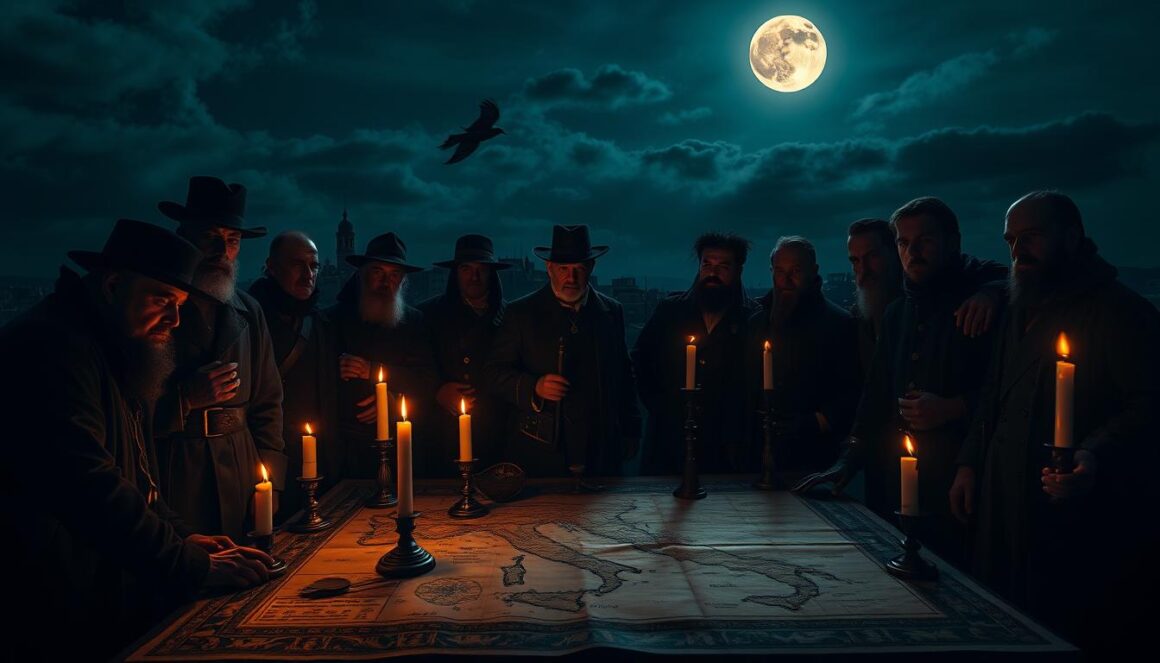
The Carbonari were a secret group that helped unite Italy. They started in the early 1800s. They wanted Italy to be free and have a fair government.
They used secret meetings and symbols to spread their message. These symbols came from charcoal-making. This helped them stay hidden and united.
The Carbonari inspired people in France and Spain too. Their work led to big changes in Italy in the 1820s and 1830s. They helped Italy become one country in 1861.
Their biggest win was the Neapolitan revolution of 1820. This made Naples a constitutional monarchy. It was a big step towards Italian unity.
But, as time went on, the Carbonari’s power faded. Many joined other groups, like “Young Italy.” The real change came when Piedmont led Italy to victory against Austria in 1859. This ended the Risorgimento era.
The Role of the Rosicrucians in Religious Reforms
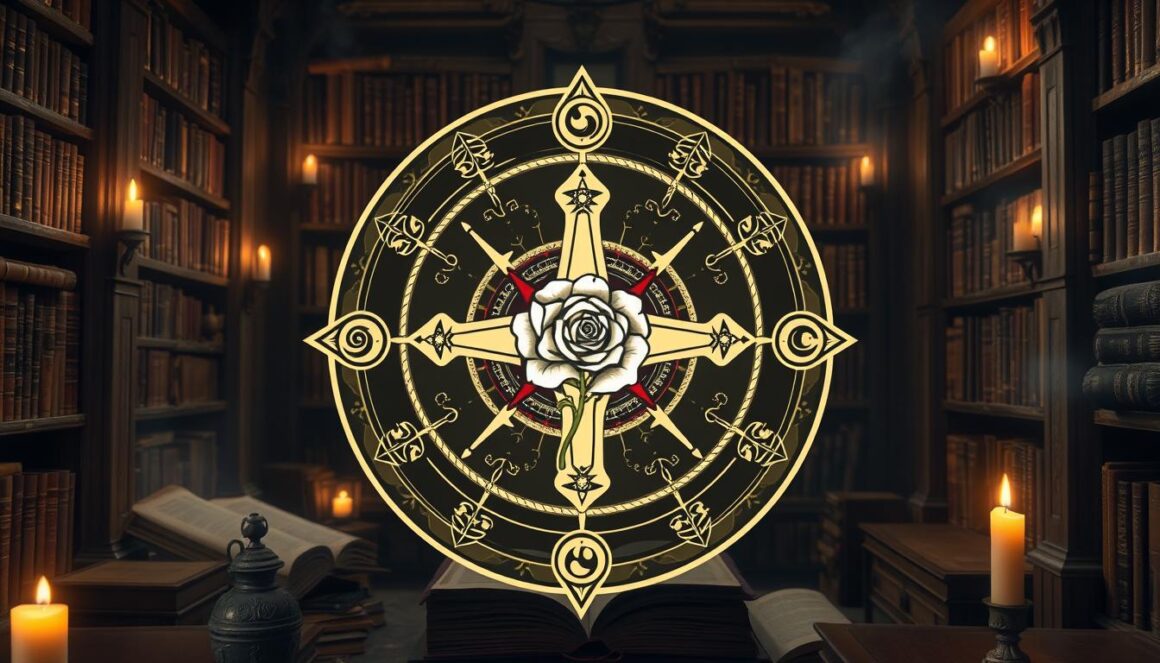
In the early 17th century, a secret group called the Rosicrucian Order started in Europe. They published three manifestos between 1614 and 1616. These talks told of a mythical founder named Christian Rosenkreuz and a group aiming to help humanity with occult knowledge.
The Rosicrucians mixed Hermeticism, Kabbalah, and Christian mysticism. They wanted to change society through spiritual growth and science.
Even though the real Rosicrucian brotherhood might not have existed, the idea sparked many real groups. It touched many minds, including Francis Bacon. The Order of the Rosy Cross began in the early 15th century, and the Ancient Mystical Order Rosae Crucis started in France in 1909, both inspired by Rosicrucian ideas.
But, as science grew in the 17th century, people started to see Rosicrucianism as too mystical. The manifestos were seen as allegories or even fake. Yet, the Rosicrucian tradition has shaped many areas, like religious thought and secret societies, across Europe and beyond.
The Knights Templar and the Crusades
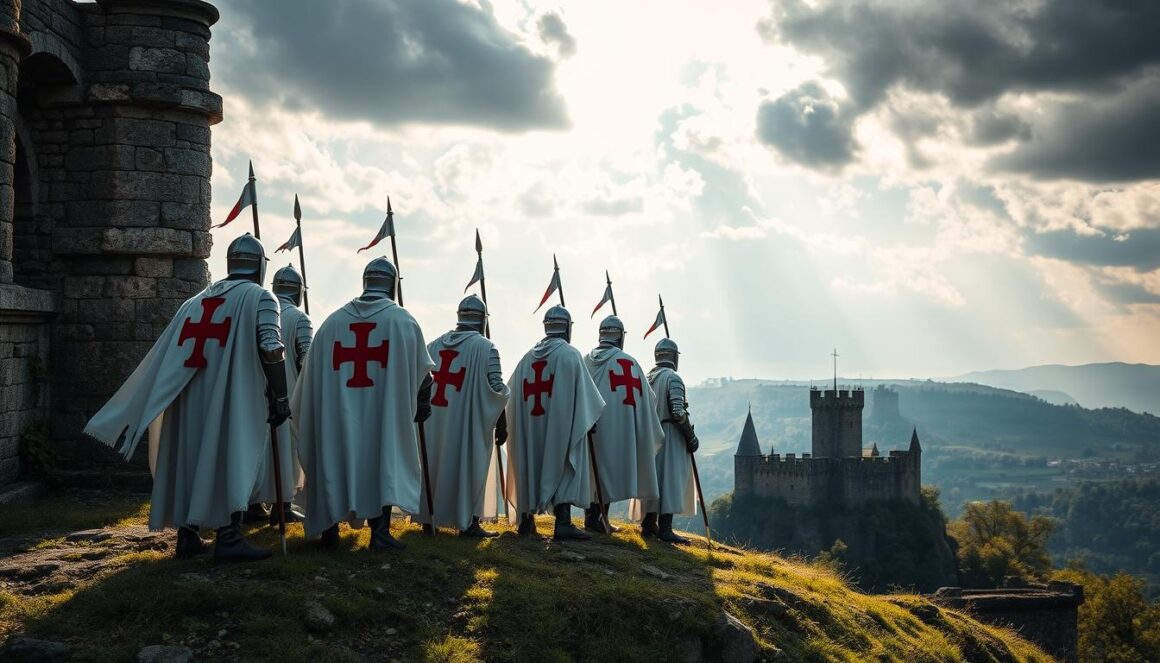
The Knights Templar were founded around 1118. They were a military order that protected Christian pilgrims in the Holy Land. They became very wealthy and influential, thanks to their banking system and tax exemptions.
At their peak, they owned lots of properties across Europe. They even lent money to kings. But, their influence started to decline after the fall of Acre in 1291.
In 1307, King Philip IV of France arrested and tortured Templars. This led to false confessions and executions. Pope Clement V dissolved the Knights Templar in 1312. Yet, their legend lives on in popular culture and conspiracy theories.
The Knights Templar’s symbol, the Cross of Lorraine, is still used today. It appears in some corporate logos. Their story is a fascinating part of history, even though it happened centuries ago.
Wrapping up
Secret societies have deeply influenced global history. They have shaped revolutions, social movements, and religious reforms in Europe and the United States. Groups like the Illuminati, Freemasons, and Knights Templar have left lasting impacts on politics, philosophy, and culture.
These societies have captured the public’s imagination with their mystery and power. Even though many have disbanded, their legacies live on. They inspire conspiracy theories that are still popular today.
New secret societies have formed, focusing on charity, personal growth, and seeking hidden knowledge. Their allure comes from exclusivity, power, and the promise of revealing secrets. These secrets could change how we see the world.
Reflecting on secret societies’ historical impacts, we see their ongoing relevance today. They tap into our desires for mystery, belonging, and extraordinary knowledge. This shows the human quest for the unknown and the extraordinary.

